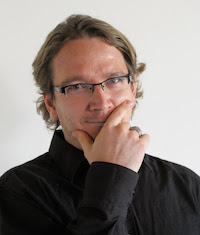New beginnings
Welcome to university. Welcome to the new you. Before you is a promising horizon, new beginnings, and seemingly endless possibilities. A brand new start; an amazing chance to redefine yourself in a whole new environment. Here your hopes and dreams for experiences, friendship, romance, and career can take more shape. This is your ticket to the good life.
This is the hype. This is the buzz. This is the pep rally sentiment that welcomes you to university. And for good reason, you are a bundle of mixed emotions. Your anticipation mixes with anxiety; both pump adrenaline through your body.
You may not even realize it, but all your desires for academic success, friendships, and romance, are motivated by a deeper question you are asking yourself.
“Who am I?”
Your anticipation and anxiety are all wrapped up in it. The human heart is constantly seeking definition, and the university culture is more than willing to help you create your own definitions of who you are.
I know it well, because I fell for many of the trappings of believing I could define myself in university. I hope you can learn from my failures. So how did I typically answer the question, “Who am I?”
1. I am what I do:
My ambitions for academic success at university weren’t wrong in and of themselves, but in subtle ways, I was defining myself by my successes and failures. It didn’t take much to realize the “I am what I do” philosophy was a truly faulty foundation.
When I got good grades, met or exceeded expectations, and had success, I felt good about myself. I took pride in my academic successes, accomplishments, and my ability to get things done.
But along with my ambition came the fear—or reality—of failure. When I failed, I started feeling depressed. Ironically, it was my failure that taught me the dangers of ultimately defining myself by what I do. If being perfect was what made me feel good about myself, I would be always be haunted or crushed by failure.
My self-reliance to define myself would only set me up for an endless cycle of failure and self rejection. And besides, there were plenty of other ways I failed at university, not just in academic success, but friendships and romance as well.
2. I am what other people say about me:
Even though I considered myself independent, what people said about me had a very powerful influence on how I viewed myself.
When people spoke well of me, I strutted a little. It felt so good to be affirmed, noticed, praised, and respected. It felt good to feel significant and important, valuable, and recognized. It felt good when I hit it off socially with friends or romantic interests.
But as soon as someone criticized me, rejected me, or said negative things about me, I started to feel down. When someone talked against me, it cut deeply and hurt greatly. The bad feelings would stay with me and ruin my mood. I had to accept the fact that not everyone would like me—no matter how likeable I was. I learned it was futile to define myself by what others said about me.
3. I am what I have:
It was so easy to take pride in what I had or what social experiences I could afford: my race, family, beliefs, education, health, possessions, going out, dining out, and travelling. It was so easy to define myself by what I had.
Media had a huge influence on me. It was easy to think that if I was going to be a somebody I had to have the latest technology, the latest fashion, and most desired brand. Mostly I looked to the future. I took delight in dreaming about owning what I like to call, “items of envy.” I found myself being tempted to define myself by immaterial talents or material possessions.
And yet in real life, I started to learn that my reputation for what I had didn’t get the same reaction as in the media. My stuff didn’t impress people as much as I had hoped. I never got the attention I desired.
It also became apparent that in real life, there were no guarantees. I feared that I could lose all I had worked for, either in an instant, or gradually, over time. One of my friends died; my health failed; I did poorly academically; I didn’t have enough money; I slipped into inner darkness. It was a total loss to put my identity in what I had.
Not who I am
Defining myself by what I did, what others said about me, or what I had, sounded like the best way to get ahead in life. I went along with the cultural hype. But my eventual failures revealed my total inadequacy to define who I was.
Defining myself by such criteria during university only made for misery and an insecure identity. I started to see the many flaws in those ways of thinking and living. None of these measures satisfied my desires for self definition. Although flattering to my ego and its desire for achievement at first, my thinking that it was up to me to define myself was an illusion, if not a nightmare.
Only after my failures did I start to make a shift. I started learning how I could be anchored in a more enduring identity. University was a good time for me to more fully discover who I was in Christ.
Who defines me?
After experiencing failure at my attempts to define myself, I started to ask, “How does God define me?” Amazingly, I found that Jesus was no stranger to my temptation to define self. When Jesus was in the wilderness and hadn’t eaten for forty days, Satan tempted Jesus.
- He told Jesus to turn stones into bread – “show me that you can do something.”
- He told Jesus to jump off the temple, and let the angels catch him- “Do something spectacular so that the people have good things to say about you.”
- He told Jesus to kneel in front of him and to worship him so that he would have everything he wanted- “ You could have vast material wealth.”
Satan told Jesus, “If you do these things, everybody’s gonna love you.” This is the lie that tempts me to compare, need to prove myself, and try to define myself. Jesus called Satan’s self-definitions a lie. Satan was merely offering conditional love.
Instead Jesus held on to who God said he was. He recalled when the spirit of God descended on him after baptism and said “You are my beloved son. On you my favour rests.” Jesus clung to God’s definition of who he was. I learned that, like Jesus, I needed to find the answer to “Who am I?” in God alone.
Holding on to what God said of him kept Jesus anchored. It didn’t matter that people praised him or rejected him; it didn’t matter whether people sang hosanna, or crucified him. Those weren’t things that made him waver.
Who I really am
Before I was born, I was loved. God says to me, “I have loved you with an everlasting love. I have written you in the palm of my hand. I knitted you together in your mother’s womb. You are mine, and I am yours. You belong to me.” God speaks of his love for me from eternity past to eternity future.
This is the essence of who I am. This is how I need to ultimately define myself. A loved child of God. I need only to hold on to this truth. I will never be secure or satisfied if I seek to define myself by what I do, what people say about me, or what I have.
With God’s view of me, it doesn’t matter if I succeed or fail, receive praises or criticisms, have gains or losses. If I am defined by my first love— the prime love behind the universe— the foundation for my identity will be unwavering. God’s love is an agape love—“unconditional, never stopping, never giving up, unbreaking, always, and forever love”1.
How deep is this love? I was loved by God before the love of my parents, family, friends, and teachers. Even these people who cared for me have not always loved me well and have sometimes wounded me. I am learning that to be human is to experience the truth that love and wounds are never separated. Human love is real, but partial and limited, it comes with wounds.
What do these disappointments in life teach me? That I have to go back to my first love in God. Only then can I forgive those who love me poorly because my first love is secure in God. Any love I receive from people is but a dim hint or a glimpse of that first love.
The reality is, I am perpetually going to fail, not do a good job sometimes, have people say unkind things about me, and I will have loss. Instead of becoming bitter or jealous, I can let it be an opportunity to remember who I am in Jesus: a loved child of God. Failure in what I do, what people say, or what things I lose, are opportunities to turn to my real and lasting identity in Jesus.
So who am I?
I am who I am, not because of what I do, but because of what Jesus has done for me.
I am who I am, not because of what people say about me, but who God says I am: his beloved child.
I am who I am, not because of what temporal things I have; I am who I am, because I have all of the eternal blessings and promises in Jesus.
What love really defines me? Who am I? I am a loved child of God.
Footnote:1 Lloyd-Jones, Sally. (2017). Found: Psalm 23.
This article was inspired by Henri Nowen’s sermon titled “Being the Beloved.”
"*" indicates required fields
Share this!
About the Author





